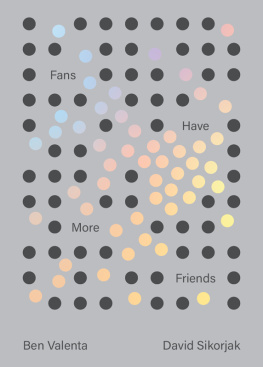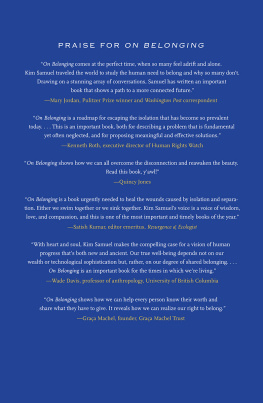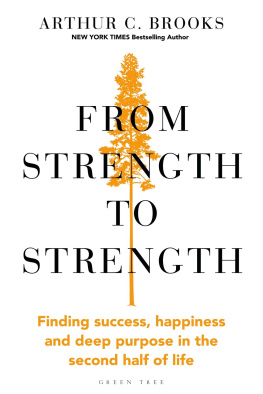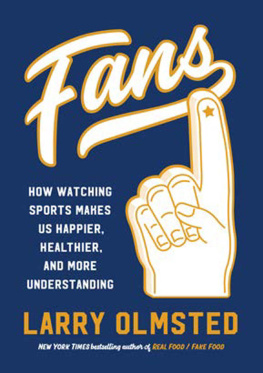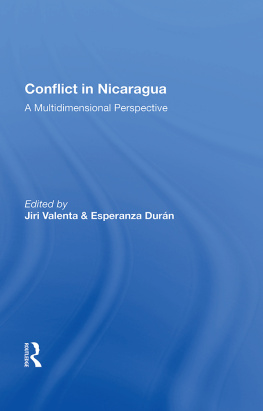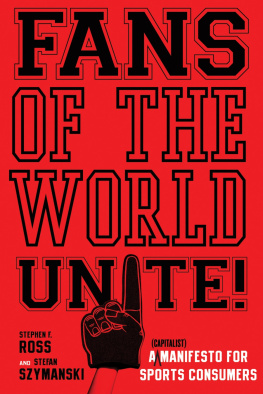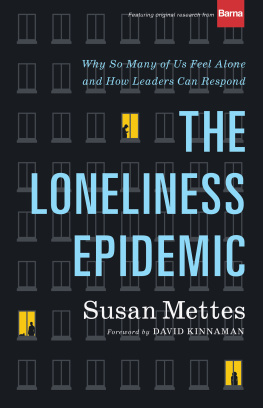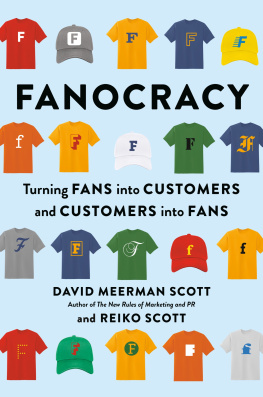Published by
Silicon Valley Press
by Michael Mulvihill
Foreword
by Michael Mulvihill
A kid in a cap, wearing a glove, eating ice cream at his first Major League game. Three generations of Crimson Tide fans together on a crisp autumn Saturday. A group of boisterous friends in the prime of life cheering on the Packers at Lambeau Field. A couple on a first date at Dodger Stadium, not knowing much about each other except their shared passion for the team.
The most important moments in sports are not happening on the field. They are happening in the stands.
In the seven years that Ive had the privilege of working with Ben Valenta at Fox Sports, the insights that he and David Sikorjak have derived from thousands of interactions with fans have led me to a new and, I believe, more correct understanding of what elevates sports to a unique place in the lives of hundreds of millions of fans.
Through in-person interviews and rigorously designed surveys, Ben and Davids research has affirmed again and again that what truly drives our business are the human connections facilitated by sports fandom. Sports binds us more closely to our friends, our families, our schools, our communities. For so many of us it can be challenging to articulate just what these relationships mean in our lives. At its best, the language of fandom says it for us.
Those powerful bonds that are difficult to describe are even harder to quantify, which has long presented a challenge to the business of sports. The traditional metrics of television ratings, attendance, and merchandise sales can provide a rough roadmap, but theyre a crude and unsatisfying way of capturing what makes our business special. Here, Ben and David lay out a more robust and direct way of using data to define what has heretofore been largely unmeasurable.
Its become fashionable to speak in reverent tones about the man in the arena. And surely the athletes whose rare talents and hard work command our attention deserve to be rewarded. But I suggest that our business has traditionally been premised on a kind of hero worship that leaves us fans and business interests alike vulnerable to human failings, or to the simple passage of time. Our heroes in sports come and go, but fandom endures. A fifteen-year career with the Boston Red Sox is legendary. Fifteen years as a Boston Red Sox fan is barely the beginning. Fans are forever.
Fandom reaches across generations. It reaches across lifetimes. Each year after the Super Bowl or the World Series, we read new stories of fans in the victorious cities who go to the gravesites of loved ones to leave mementos for a departed fan. Even in death, if youre a fan, you belong.
In these pages, Ben and David write deftly on the power of belonging. We live in an increasingly atomized world. Politics, technology, and most recently the pandemic conspire to drive us ever further apart. Our sense of belonging is damaged. In one dispiriting piece of research cited here, 61% of Americans report feeling lonely, and that was before the pandemic and its literal enforcement of isolation. Sports must be an antidote to loneliness. The leaders of the sports industry must recognize that the ability of sports to provide a feeling of belonging isnt just part of the appeal, but rather the reason this entire business exists at all.
Ill close with a story thats never far from my mind as I think about how Fox Sports can be a smarter and more successful business. In 2011, at halftime of Super Bowl XLV in Dallas, my parents and I met a young man who had traveled from Pittsburgh my own hometown to see the Steelers play for the Lombardi Trophy. In addition to the usual gameday gear, he was wearing a pair of heavy leather work boots: not exactly comfortable or necessary for a full day on your feet in a domed stadium.
My dad noticed the boots. The young man explained that they had belonged to his own father, now deceased, who had worn them daily for many years to his job in a western Pennsylvania steel mill.
I dont know, he said haltingly. I guess I just wanted him to be here.
These poignant stories play out constantly in arenas and stadiums all over the world. In this book, Ben and David go beyond anecdote to compile those stories and present them in a way that allows us compels us to think differently about the nature of sports. Their work reminds us of the essential animating quality of fandom: Were in this together.
Introduction
Back in 2018, we sat with lifelong Chicago Cubs fans Nick Camfield and his dad, Lindsay, along the first-base line at Wrigley Field. The setting was postcard perfect, with a field so green youd think Crayola had created it. The conversation flowed freely between baseball and life. Both Nick and Lindsay are thoughtful and eloquent, blessed with an uncanny ability to wax poetic about baseballs subtle nuances. At some point during the early innings, Nick described a notion so vividly that his words still echo in our minds. He said, Baseball is my family sport because whenever I see pictures of Ernie Banks, I think of my dad. Whenever I see Ron Santo clicking his heels, I think of my dad in the summers when I was little, watching TV, me sitting on his lap.
What Nick hit on and what feels relatable to so many sports fans is that the Cubs are somehow more than just his team. We asked Nick to elaborate on this notion: What does it mean for baseball to be his family sport? Some of my earliest memories are sitting in the living room, playing with my baseball cards while my dad had WGN on the television, he said. Whenever I hear Harry Carays voice, it immediately makes me think of childhood, growing up in central Illinois. Home is the only way I can describe it. I feel like everything in the world is where its supposed to be.
Like that of so many families, the Camfields loyalty to their team runs at least three generations deep. Its like a religion, an heirloom thats passed on, Nick said. It didnt matter that the Cubs were known less for winning than for losing spectacularly. That was just part of who we were, Nick shrugged. You expected that they were going to play hard, and then they were going to fall short.
The Cubs tendency to lose, in fact, was part of Nick and Lindsays bond: This was what my father suffered through, and his father suffered through, and you know what? Im going to suffer through it, too, because its been passed off to me, said Nick. This has been given to me to take care of, like its been taken care of before.
Of course, all that changed in 2016. Thats when the Cubs won their first World Series in 108 years. Nick, who was a season ticket holder at the time, took his father to a game.
Now, watching any game at Wrigley much less a World Series game is a special experience. It transports you. You sense the history. You feel the nostalgia. If youve been there, then you understand firsthand what longtime Cubs fan and Pearl Jam front man Eddie Vedder meant when he once told Cubs radio color analyst Ron Coomer, Every time I walk [toward Wrigley Field], I get the same feeling I did when I was eight years old. There are not many places in the world that are still like that. Wrigley is the perfect backdrop for exploring intergenerational relationships because it has played host to countless intergenerational moments.
We asked Lindsay what, on the surface, seemed like a simple question: What was it like to watch the Cubs in the World Series at Wrigley Field with his son? Tearing up, all he could muster was a three-word response: It was special.
One might presume those were tears of joy, the result of a long-awaited championship. But it wasnt the thrill of victory that had Lindsay welling up. It was the connection that the Cubs had created between him and his son. That one World Series game, pivotal as it might have been, encapsulated thousands of other meaningful moments, not simply on the field but in

